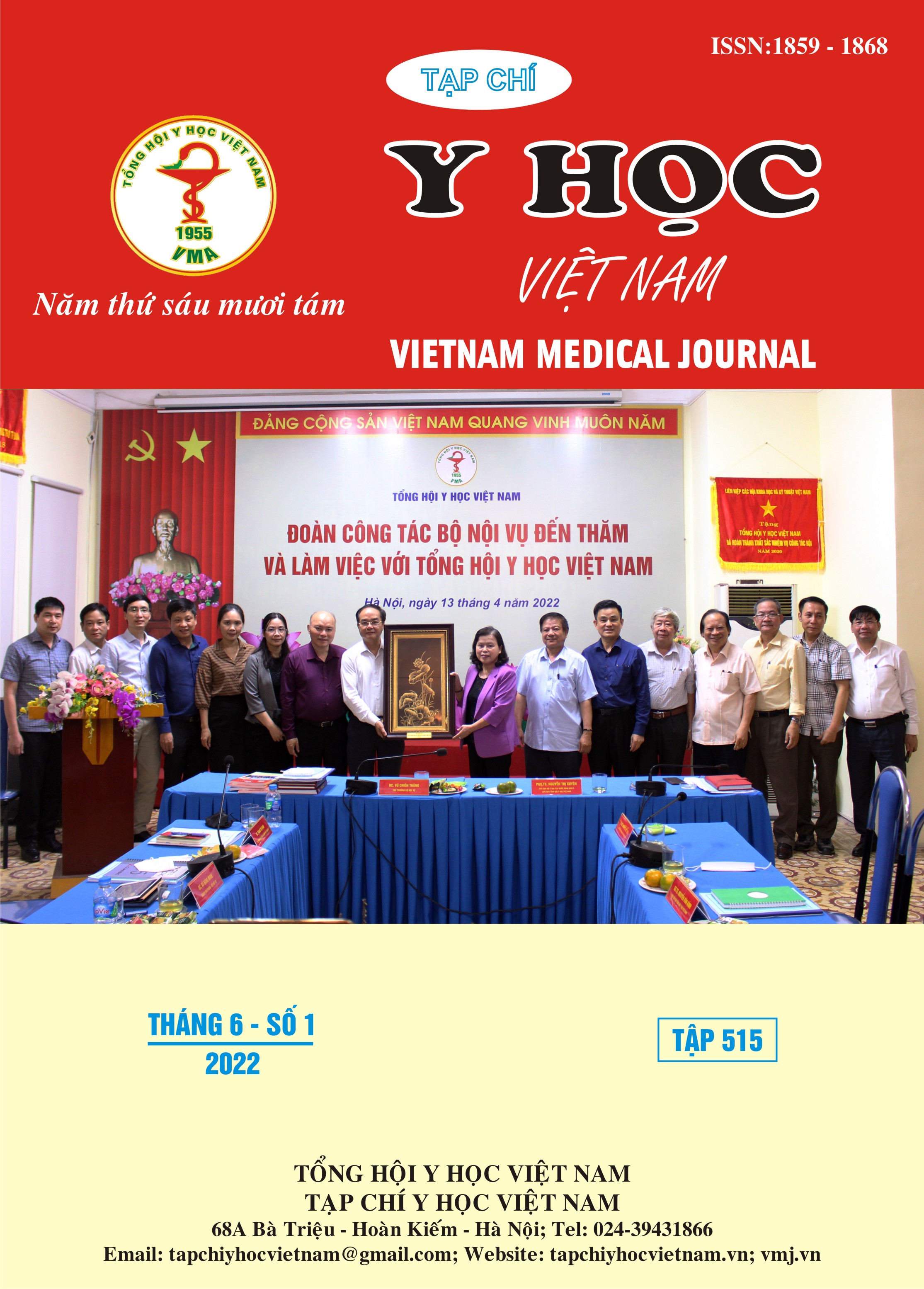EVALUATION OF SEFT-CARE BEHAVIOR IN CANCER PATIENTS AFTER CHEMOTHERAPY AT ONCOLOGY CENTER IN HAI DUONG GENERAL HOSPITAL, HAI DUONG PROVINE
Main Article Content
Abstract
Objective: Describe self-care behavior of cancer patients after chemotherapy and explore some factors related to self-care behavior of patients. Research Methods: A cross-sectional descriptive study analysis on 80 patients undergoing chemotherapy at Hai Duong General Hospital. Research Results: The study showed that most of the patients had a disease duration of 1 to 3 years (61.2%), colon cancer accounted for the highest rate 27.5%, followed by gastric cancer accounted for 22.5%. 100% of patients receive support from family and medical staff. Regarding the patient's self-care behavior is still not good, the average score is 46.1(SD .) ±7.98). Only 40% number of patients often learn about the best ways to take care of their health, and when given a new medication, they learn about its effects and possible side effects. Regarding the patient's confidence level, the average score was 26.1 (SD±4.83). Most patients do not feel confident and do not keep calm in facing difficulties and dealing with unexpected situations. Results indicated that education level và self efficacy variable was associated with self-care behaviors of patients treated with chemotherapy. Conclusion: The patient's self-care behavior is not good, the average score is 46.1, the patient's self-confidence is low, the average score is only 26.1. Education level và self efficacy variable was associated with self-care behaviours of patients treated with chemotherapy.
Article Details
References
2. Dikken, C., & Wildman, K. (2013). Control of nausea and vomiting caused by chemotherapy. Cancer Nursing Practice, 12(8), 24-29.
3. McQuestion, M. (2011). Evidence-based skin care management in radiation therapy: clinical update. Seminars in oncology nursing, 27(2), e1-e17.
4. Scialdone, L. (2012). Overview of supportive care in patients receiving chemotherapy antiemetic, pain management, anemia, and neutropenia. Journal of pharmacy practice, 25(2), 209-221.
5. Loh, S. Y., Packer, T., Chinna, K., & Quek, K. F. (2013). Effectiveness of a patient self-management programme for breast cancer as a chronic illness: a non-randomised controlled clinical trial. Journal of Cancer Survivorship, 7(3), 331-342.
6. Trần Thị Liên & Lê Thanh Tùng (2019). Thực trạng nhu cầu chăm sóc giảm nhẹ của người bệnh ung thư điều trị tại trung tâm ung bướu của bệnh viện đa khoa tỉnh Thái Bình năm 2019
7. Andrea Chirico et.al. (2017). Self-Efficacy for Coping with Cancer Enhances the Effect of Reiki Treatments During the Pre-Surgery Phase of Breast Cancer Patients. Anticancer Reasearch, Vol. 37, Issue 7 July 2017
8. Kiaei, M., et al., 2016. [Association between self-efficacy and quality of life in women with breast cancer undergoing chem-otherapy (Persian)]. The Journal of Qazvin University of Medical Sciences, 20(2), pp. 58-65
9. Mudrak, J., et al., 2016. Physical activity, self-efficacy, and quality of life in older Czech adults. European Journal of Ageing, 13(1), pp. 5-14


